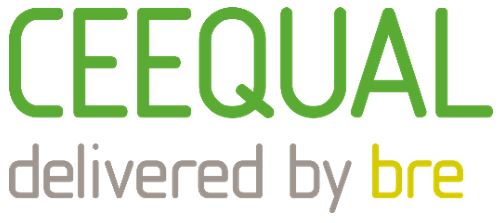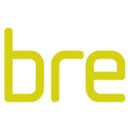CEEQUAL International

|
| Kai Tak Development: the reconstruction and upgrading of Kai Tuk Nullah (Hong Kong) achieved a ‘Good’ Client and Design CEEQUAL rating. |
Contents |
[edit] Introduction
CEEQUAL is the international evidence-based sustainability assessment, rating system and awards scheme for civil engineering, infrastructure, landscaping and works in public spaces.
The scheme encourages and promotes the attainment of high economic, environmental and social performance in all forms of civil engineering through identifying and applying best practice. It aims to assist clients, designers and contractors to deliver improved sustainability performance and strategy in a project or contract, during specification, design and construction.
Based in the UK, CEEQUAL has been operating since 2003 and has been available internationally since 2011. This article explains the overall CEEQUAL Methodology and the International Edition of the Assessment Manual, which is applicable to the assessment, rating and improvement of projects anywhere in the world.
[edit] How does CEEQUAL work?
CEEQUAL uses a self-assessment process in which CEEQUAL-trained assessors rigorously assess project or contract strategy and performance on a range of environmental and social issues, arranged in nine sections.
Upon completion of each assessment, it is externally verified by a CEEQUAL-appointed verifier, and then ratified by the CEEQUAL scheme management.
Assessors use the appropriate CEEQUAL manual to score performance against questions relevant to their project or contract. They do this by collecting evidence to support their scores for each question. Questions in the assessment manual that are irrelevant to the project are scoped-out.
Once the assessment score is ratified, the project or contract team is granted an award based on the percentage score achieved. They are then presented with a CEEQUAL award certificate that demonstrates their level of achievement on the Pass – Good – Very Good – Excellent scale.
All Assessment manuals have the same structure in nine sections (listed below) and similar question topics, but there are some differences between the questions in the Projects and Term Contracts manuals related to the nature of the work being assessed. The sections are:
- Project Strategy
- Project Management
- People & Communities
- Land use & Landscape
- Historic Environment
- Ecology & Biodiversity
- Water Environment
- Physical Resources: use and management
- Transport.
[edit] Why was CEEQUAL International created?
CEEQUAL’s move to create an International Edition was driven by overseas enquiries and a desire by UK users with international interests to use the CEEQUAL Assessment Methodology on, and secure its beneficial influence on performance for, their projects beyond the UK & Ireland.
Through the commitment of many experts working for the benefit of the industry, the resulting International Edition of the Assessment Manual for Projects is applicable anywhere in the world.
Roger Venables, CEEQUAL Chief Executive 2006-15 said: “I am delighted to have been able to run our training courses and awareness-raising sessions in the UAE, Hong Kong and Sweden, and to increasing uptake of CEEQUAL for International Projects across the rest of the world.”
[edit] Using the scheme in new locations
A key feature of CEEQUAL is the weighting of the question scores. With CEEQUAL International, blanket use of the established UK & Ireland weightings and scores is felt to be inappropriate because of differences in physical environmental conditions and/or cultural influences. A project team using CEEQUAL International therefore needs to work with CEEQUAL and others in the area to create a set of weightings for their specific country or region.
A weightings exercise for Hong Kong was completed in 2013 and led to an International Manual with Hong Kong-weighted scores, and which is now in full use there. In addition, CEEQUAL-led weights surveys are under way in Sweden and other Nordic Countries; they will also be started shortly for the Gulf States region.
Each Assessor also needs to take into consideration the local regulations and practice of each country where the assessed project is located when applying the CEEQUAL questions to their project. In addition, with CEEQUAL’s agreement, the Manual can be translated into other languages, as has already been done by Swedish users.
In support of this approach, region-specific references and explanation of terms will be presented on the Online Document Library for assessors and verifiers. This will enable assessors to present to clients and colleagues wherever they are working a manual relevant to their needs and ways of working, while maintaining the rigour of the overall CEEQUAL scheme and comparability of results.
[edit] Developing the use of CEEQUAL International
Formal verified assessments using CEEQUAL outside the UK and Ireland have been completed in Sweden and Hong Kong, and many more are under way.
Participants from outside the UK and Ireland are welcome to attend UK training courses, and CEEQUAL Assessor Training Courses outside the UK & Ireland have been held in Dubai, Abu Dhabi, Sweden and Hong Kong.
We are very happy to receive requests and invitations to run CEEQUAL Assessor Training Courses elsewhere.
[edit] Benefits to users
Teams report benefits in five main areas:
- Significant improvements to projects and contracts through adoption of best practice’
- Reputation-building and good PR.
- Cost savings through CEEQUAL’s influencing role (for example, one project reported a cost save of 3.3% [£5 million] due partly to changes triggered by consideration of CEEQUAL questions).
- Demonstrating commitment to the sustainability agenda, and providing public recognition of your work.
- Enhanced team spirit.

|
[edit] About CEEQUAL
CEEQUAL was developed by a team led by the Institution of Civil Engineers (ICE), supported by the Institution’s Research & Development Enabling Fund and the UK Government. The Scheme is operated by CEEQUAL Ltd, which since 1 November 2015 has been owned by BRE Global Ltd.
More details, including case studies of completed projects can be found at: www.ceequal.com/case_studies.html
For a discussion about how the International Edition of CEEQUAL for Projects could be applied to your projects, please contact the Scheme Management Team at ceequal.com_ enquiries@ceequal.com or call +44 (0)333 014 7880.
For more information about CEEQUAL, visit www.ceequal.com.
[edit] About this article
This article was written by CEEQUAL and can also be accessed on the CEEQUAL website under the 'General: international projects' heading
More articles by BRE/CEEQUAL on Designing Buildings Wiki can be accessed HERE.
[edit] Related articles on Designing Buildings Wiki
- Building Research Establishment.
- BRE articles.
- BRE Trust.
- BREEAM.
- BREEAM and CEEQUAL.
- BREEAM and Tracker Plus.
- BREEAM associate online training.
- BREEAM In-Use International.
- BREEAM USA.
- BREEAM: Value multiplies while costs plummet.
- CEEQUAL.
- CEEQUAL version 6.
- Code for Sustainable Homes.
- Leadership in Energy and Environmental Design.
- Passivhaus.
- Ska rating.
- WELL and BREEAM align.
Featured articles and news
The UK's Modern Industrial Strategy: A 10 year plan
Previous consultation criticism, current key elements and general support with some persisting reservations.
Building Safety Regulator reforms
New roles, new staff and a new fast track service pave the way for a single construction regulator.
Architectural Technologist CPDs and Communications
CIAT CPD… and how you can do it!
Cooling centres and cool spaces
Managing extreme heat in cities by directing the public to places for heat stress relief and water sources.
Winter gardens: A brief history and warm variations
Extending the season with glass in different forms and terms.
Restoring Great Yarmouth's Winter Gardens
Transforming one of the least sustainable constructions imaginable.
Construction Skills Mission Board launch sector drive
Newly formed government and industry collaboration set strategy for recruiting an additional 100,000 construction workers a year.
New Architects Code comes into effect in September 2025
ARB Architects Code of Conduct and Practice available with ongoing consultation regarding guidance.
Welsh Skills Body (Medr) launches ambitious plan
The new skills body brings together funding and regulation of tertiary education and research for the devolved nation.
Paul Gandy FCIOB announced as next CIOB President
Former Tilbury Douglas CEO takes helm.
UK Infrastructure: A 10 Year Strategy. In brief with reactions
With the National Infrastructure and Service Transformation Authority (NISTA).
Ebenezer Howard: inventor of the garden city. Book review.
The Grenfell Tower fire, eight years on
A time to pause and reflect as Dubai tower block fire reported just before anniversary.
Airtightness Topic Guide BSRIA TG 27/2025
Explaining the basics of airtightness, what it is, why it's important, when it's required and how it's carried out.
Construction contract awards hit lowest point of 2025
Plummeting for second consecutive month, intensifying concerns for housing and infrastructure goals.
Understanding Mental Health in the Built Environment 2025
Examining the state of mental health in construction, shedding light on levels of stress, anxiety and depression.
The benefits of engaging with insulation manufacturers
When considering ground floor constructions.
Lighting Industry endorses Blueprint for Electrification
The Lighting Industry Association fully supports the ECA Blueprint as a timely, urgent call to action.
























